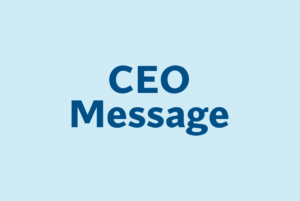Following the late February ransomware attack that shut down Change Healthcare — the largest health care payment system in the country — patients, hospitals, and other providers continue to reel from the effects, even as federal and state agencies work to find solutions.
On Sunday, federal officials called on UnitedHealth Group to take responsibility for the adverse impacts of the attack. In a letter, Health Secretary Xavier Becerra and Acting Labor Secretary Julie Su asked for greater transparency and expedited payments. They also urged other commercial insurance companies and payers to make interim payments to providers, ease administrative burdens, and pause prior authorizations.
At the state level, the Department of Managed Health Care on Monday sent a letter to all health plans asking them to support providers during this significant interruption. The letter calls for flexibilities such as acceptance of paper claims, relaxation of timely filing requirements, and partnership with providers to work through the problems the attack has created.
Even with state and federal intervention, to date, UnitedHealth Group’s efforts to minimize impact have fallen short. First, loan funding offered has been far lower than necessary to ensure continuity of health care services. Second, loan contracts appear to be onerous and one-sided (requiring providers to pay back loans within five days of notice by UnitedHealth Group, for example).
Here in California, we are working to understand the extent of the impact through an assessment tool that was sent to hospitals last week. Even as the assessment is being completed, the early findings are disturbing. Nearly all respondents report detrimental impacts, and several large health systems report that 76%-100% of their patient revenue is affected. Many hospitals that rely on Change Healthcare for the entirety of their claims to be processed must now reroute all claims and remittances.
We will share the findings of this survey with state and federal lawmakers to spur response and engagement to minimize the effects on patients and providers. One potential vehicle for relief could be a federal budget continuing resolution scheduled for action on March 22.
Untangling this mess could take weeks, if not months. It’s critical during that time period that we are vigilant about the effect on hospitals — especially the hundreds in California that have little to no financial cushion with which to absorb this massive disruption.
To that end, the following guidance will be helpful if any of the following is relevant to your organization:
- If you see an increase in claims denials (as providers find new clearinghouses for claims and remittances, the process to obtain “clean” claims could be muddied and denials could spike), contact your CMS Region 9 office and copy Megan Howard, CHA vice president, policy.
- If your organization is willing to support advocacy efforts and push back on UnitedHealth Group statements minimizing the impact, you can share your story about the effect on patients and care by contacting Megan Howard, CHA vice president, policy.
- If your organization is willing to discuss the impact directly with your congressional representatives, contact Megan Howard, CHA vice president, policy; this information may also be used for advocacy at the state level.

